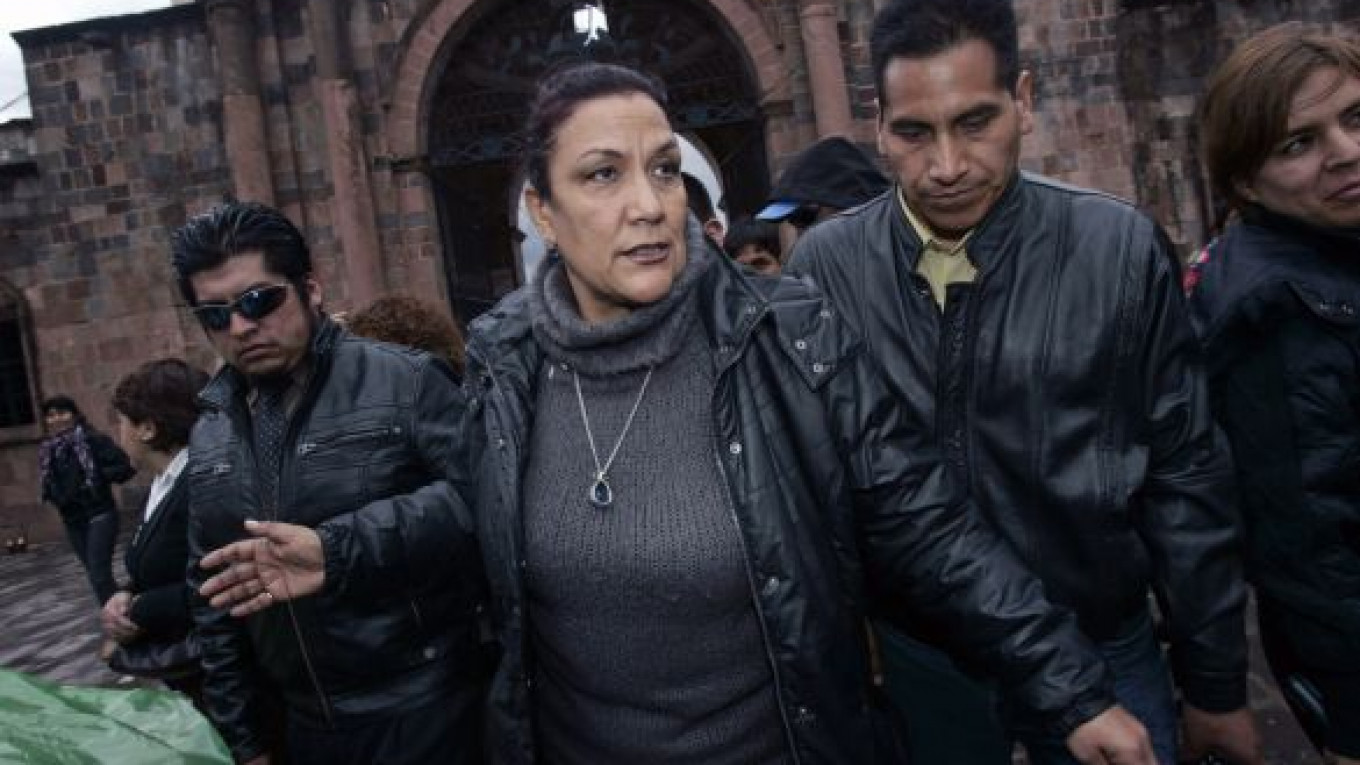LIMA, Peru — The Peruvian journalist deported by the United States to Russia in a spy swap last year says she never spied for Moscow — and that her husband hid his espionage from her until the couple's arrest.
Vicky Pelaez says she also intends to return to her native country.
"I might never forgive him," Pelaez said of her Russian husband, Mikhail Vasenkov, according to an interview published late last week by the newsmagazine Caretas.
She said she had known him only as Juan Lazaro, a supposed Uruguayan, through nearly 20 years of marriage.
The two were deported from their home in New York to Russia in July with eight other alleged sleeper spies after they pleaded guilty to conspiring to act as unregistered agents of a foreign country.
"Two hours before the sentencing, he still called himself Juan Lazaro. The diplomats and lawyers were the ones who suggested he give his real Russian name," said Pelaez, a former longtime columnist for the New York newspaper El Diario/La Prensa.
"And suddenly he wasn't my 'Juancho,' though he remains my husband, the father of my children," Pelaez said.
"I had mixed emotions in that cell, where nobody told me what was happening. I am a nearly 60-year-old woman. I love my companion. But I may never forgive him for not being straight with me," Pelaez added.
"They put a uniform on me, they handcuffed me, and they put me in a cell — even though I had done nothing," she said.
Asked why she pleaded guilty if she wasn't a Russian spy, Pelaez said "there was no guarantee I could prove my innocence."
The couple has been living in Russia, and Pelaez did not speak out publicly about the case until she surfaced in Peru earlier this month en route to bury her father in her native highlands city of Cuzco.
Pelaez said she sorely misses her two sons, who remain in New York. The younger of the two, 17-year-old Juan Lazaro Jr., is Vasenkov's son.
Pelaez said she was astounded that Vasenkov had been so diligent in hiding his Russian identity.
"Not even when we fought would I hear a word in Russian … not even in intonation. Such was his preparation," she said.
But former colleagues in Peru who knew the couple when they met in the 1980s commented to The Associated Press last year that Lazaro's accent speaking Spanish did not strike them as that of a Uruguayan.
When the two met, Pelaez was a gutsy television reporter covering the violent Shining Path insurgency, Vasenkov a news photographer and martial arts aficionado.
In Russia now, the 65-year-old Vasenkov is treated like a hero, Pelaez said. "But he suffers for the lack of his son, to whom he dedicated his best hours and whom he now can't see."
Pelaez said she doubted she would return to writing opinion columns — she became known as a strident defender of Cuba's Fidel Castro and astringent critic of U.S. foreign policy while at El Diario/La Prensa.
She has been receiving a Russian pension, she said.
For the moment, Pelaez said, she and Vasenkov are trying to put their relationship back in order.
"I'm the wife, the mother of his child, his steady companion, and we need to talk a lot in order to move ahead."
A Message from The Moscow Times:
Dear readers,
We are facing unprecedented challenges. Russia's Prosecutor General's Office has designated The Moscow Times as an "undesirable" organization, criminalizing our work and putting our staff at risk of prosecution. This follows our earlier unjust labeling as a "foreign agent."
These actions are direct attempts to silence independent journalism in Russia. The authorities claim our work "discredits the decisions of the Russian leadership." We see things differently: we strive to provide accurate, unbiased reporting on Russia.
We, the journalists of The Moscow Times, refuse to be silenced. But to continue our work, we need your help.
Your support, no matter how small, makes a world of difference. If you can, please support us monthly starting from just $2. It's quick to set up, and every contribution makes a significant impact.
By supporting The Moscow Times, you're defending open, independent journalism in the face of repression. Thank you for standing with us.
Remind me later.






